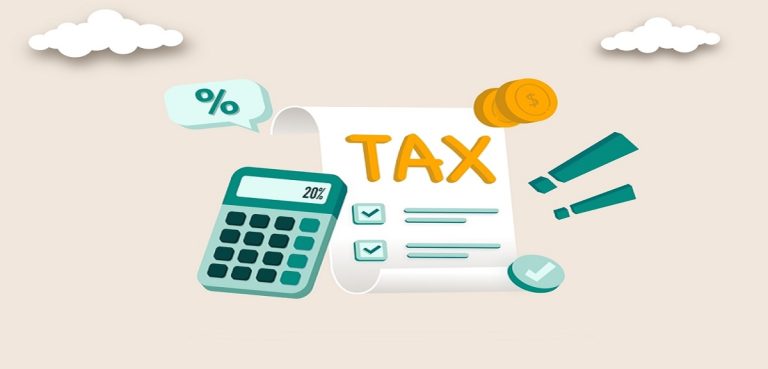When it comes to income tax compliance in India, businesses often find themselves entangled in various regulations. One such important section that can impact a taxpayer significantly is Section 271B of Income Tax Act. Many taxpayers either overlook or are unaware of the implications of this section, which may result in hefty penalties.
In this blog, we will dive deep into who is liable under Section 271B, what kind of penalty can be imposed, how to avoid it, and how using the right online billing software and GST billing software like MargBooks can help stay compliant and avoid unnecessary penalties.
What Is Section 271B of Income Tax Act?
Section 271B of the Income Tax Act, 1961, deals with penalty provisions for failure to get accounts audited as per Section 44AB of the Act.
Under Section 44AB, certain individuals and businesses are required to get their accounts audited if their turnover or gross receipts exceed the prescribed limit.
If they fail to comply, Section 271B empowers the Income Tax Department to impose a penalty.
When Is Audit Mandatory Under Section 44AB?
To understand liability under 271B, it’s crucial to first understand when an audit is required.
You are liable for a tax audit if:
- In the case of business:
- Your turnover exceeds ₹1 crore in a financial year.
- However, if you’re opting for the presumptive taxation scheme under Section 44AD, and your turnover is below ₹2 crore, you may be exempt.
- Your turnover exceeds ₹1 crore in a financial year.
- In the case of a profession:
- Your gross receipts exceed ₹50 lakh in a financial year.
- Your gross receipts exceed ₹50 lakh in a financial year.
- In case of presumptive income under 44AD/44ADA/44AE:
- If you declare income lower than the presumptive rate and it exceeds the basic exemption limit, then an audit is mandatory.
Who Is Liable Under Section 271B?
Now, coming to the core of the topic, who is liable under 271B of Income Tax Act for audit penalty?
You are liable if you fall under Section 44AB and:
- You do not get your accounts audited, or
- You fail to furnish the audit report within the specified due date (usually 30th September or 31st October of the assessment year, depending on the category of taxpayer).
In short, any taxpayer who is required to get audited with GST billing software and fails to do so or delays filing the audit report, is liable under Section 271B.
What Is the Penalty Under Section 271B?
The penalty amount is quite steep. It is 0.5% of the total turnover or gross receipts, subject to a maximum of ₹1,50,000.
For example:
- If your turnover is ₹80 lakhs, and you fail to get audited:
Penalty = 0.5% of 80,00,000 = ₹40,000. - If turnover is ₹5 crores:
Penalty = ₹1,50,000 (as it exceeds the cap).
However, there is a silver lining. The penalty may be waived if the taxpayer proves there was a reasonable cause for the failure, such as:
- Natural calamity
- Serious illness
- Bookkeeping errors due to software failure
- Staff leaving at a critical time
- System crash, etc.
How to Avoid Penalty Under Section 271B?
Prevention is always better than a penalty. Here’s how businesses and professionals can avoid falling under the penalty net:
1. Keep Accounts Updated Year-Round
Maintain your books of accounts regularly and don’t wait till the end of the financial year.
2. Use Reliable Accounting Software
Modern businesses use online billing software and GST billing software to automatically track transactions, generate invoices, and maintain ledgers.
MargBooks is one such robust cloud-based accounting and billing software that helps you stay compliant by:
- Automatically calculating GST
- Managing inventory
- Generating reports instantly
- Maintaining all transactions securely
- Keeping audit logs for easy reconciliation
3. Engage with a Chartered Accountant
Don’t wait till the last moment. A CA can guide you about audit requirements and ensure the timely filing of your audit report.
Role of Online Billing & GST Software in Audit Compliance
Gone are the days when businesses maintained registers and handwritten invoices. With increased digitisation and GST regulations, it’s practically impossible to manage compliance manually.
Here’s how software like MargBooks helps:
- Real-time Invoicing: Instant creation of GST-compliant invoices.
- Auto Tax Calculation: Reduces errors in GST computation.
- Ledger & Balance Sheet Maintenance: Keeps books clean and audit-ready.
- Filing Ready Reports: Easily export data required for tax audit and income tax filing.
- Cloud Access: Securely access your business data anytime, from anywhere.
This not only improves business efficiency but also ensures you don’t miss out on audit deadlines, thereby saving you from penalty under Section 271B.
Conclusion
Section 271B of Income Tax Act can catch you off guard if you’re not proactive with your accounts and audit requirements. The penalty, though avoidable, is enforced strictly when businesses fail to comply with Section 44AB.
The good news? Staying compliant is easier than ever with the right tools and timely planning.
If you’re running a business and want to avoid tax-related penalties. Investing in a smart solution like MargBooks, an all-in-one online billing software and GST billing software, can help you stay organised, audit-ready, and compliant throughout the year.




